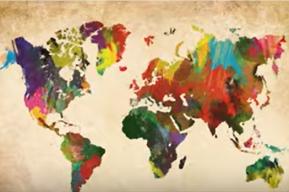Article
Kenya Assumes Chairmanship of the Group of Friends for Education and Lifelong Learning

H.E. Mr. Martin Kimani, Permanent Representative of Kenya to the UN, has assumed the role of Chair for the Group of Friends for Education and Lifelong Learning, serving from October 2023 to March 2024. In this capacity, Ambassador Kimani will provide leadership for the group's activities during significant educational milestones at the United Nations headquarters in New York.
Among the noteworthy upcoming events are the International Day of Education and the Commission on the Status of Women, both of which hold paramount importance on the global education agenda. In addition to these events, Ambassador Kimani and the 39 members of the Group will actively participate in advocacy efforts to ensure that education maintains its central position in the discussions leading up to the Summit of the Future.
As Chair, H.E. Kimani conducted an interview addressing critical questions concerning educational priorities in Kenya. He also outlined his vision for the Group's enhanced contributions to advancing global education commitments at the United Nations. You can find the interview below. Discover Ambassador Kimani's vision and priorities in the interview below.
- Your Excellency, what are the measures Kenya is taking at the national level to transform the approach to teaching and learning, ensuring that it responds to the evolving needs of students and effectively prepares them to face the challenges of the 21st century?
Adoption of the Competency Based Curriculum (CBC)
In undertaking the process of education reforms, Kenya’s main shift is the introduction of the Competency Based Curriculum (CBC), which advocates for holistic development of learners. The vision of CBC is to provide every learner with world class standards in knowledge, skills, and attitudes to enable them to thrive in the 21st century.
The shift is from a curriculum that is highly content, examinations, and teaching oriented to one that is competency based, flexible and allows a balance between formative and summative evaluation. In CBC, the teacher does not assume the monopoly of knowledge but rather facilitates learning hence nurturing creativity and innovativeness among learners.
Further, CBC has the advantage of developing core-competencies such as Communication and Collaboration; Critical Thinking and Problem Solving; Imagination and Creativity; Citizenship; Digital Literacy; Learning to Learn and Self-Efficacy. This will no doubt build the much needed 21st century skills of being self-directed, innovative, digitally, financially, and economically literate. It will also guide them to being critical thinkers, problem solvers, collaborators, communicators as well as becoming empowered, engaged, and ethical global citizens.
Enhancing teaching and learning through technology
To increase access to provision of quality and inclusive education, Kenya has made great strides in developing innovative and targeted interventions to enhance teaching and learning through integration of Information and Communication Technology (ICT). Integration of ICT is also a strategy for ensuring resilience in education even in times of crisis as was the case during COVID-19 pandemic. Kenya has therefore begun the journey of adapting Digital Education, by using technology, digital content and instruction in the education system to make it more effective and efficient than the traditional education system.
Teacher Capacity
The education reforms are changing the role of the teacher to that of a facilitator and not the only source of knowledge and education. Kenya recognizes the critical role played by the teachers for effective implementation of the curriculum. Numerous programs have therefore been developed, aimed at re-orienting teaching and learning, skill development towards uptake of digital approaches by introducing transformative pedagogy and management skills. The goal is to empower teachers and keep them abreast with the ever-changing technology.
- Your Excellency, how the Group of Friends for Education and Lifelong Learning can continue to enhance its contribution to advancing global commitments on education?
The Group of Friends for Education and Lifelong Learning actively participated in the preparation and success of Transforming Education Summit held during the High-Level week in September 2022.
The Group of Friends for Education and Lifelong Learning can continue advocating for the transforming education agenda by advocating at the UN for more platforms that allow Member States to share experiences, success stories and insights on mitigating challenges facing education in the 21st century.






